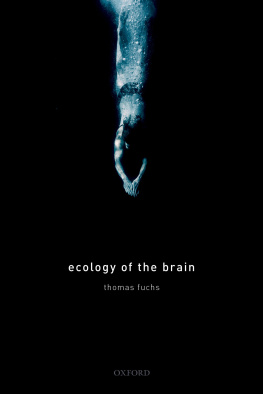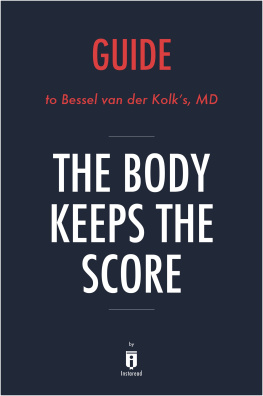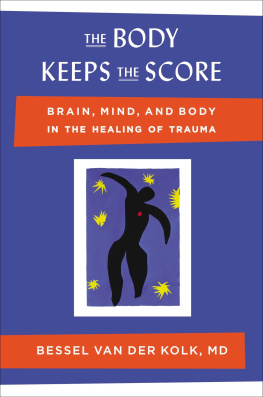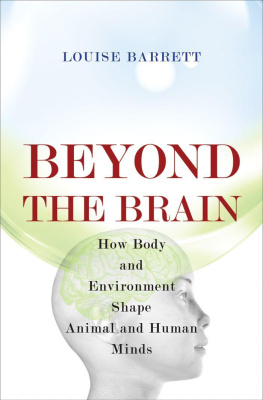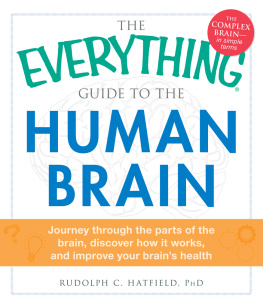Ecology of the Brain

Great Clarendon Street, Oxford, OX2 6DP,
United Kingdom
Oxford University Press is a department of the University of Oxford. It furthers the Universitys objective of excellence in research, scholarship, and education by publishing worldwide. Oxford is a registered trade mark of Oxford University Press in the UK and in certain other countries
Originally published as Das Gehirn ein Beziehungsorgan
by W. Kohlhammer GmbH, 2007
W. Kohlhammer GmbH 2018
The moral rights of the author has been asserted
First Edition published in 2018
Impression: 1
All rights reserved. No part of this publication may be reproduced, stored in a retrieval system, or transmitted, in any form or by any means, without the prior permission in writing of Oxford University Press, or as expressly permitted by law, by licence or under terms agreed with the appropriate reprographics rights organization. Enquiries concerning reproduction outside the scope of the above should be sent to the Rights Department, Oxford University Press, at the address above
You must not circulate this work in any other form and you must impose this same condition on any acquirer
Published in the United States of America by Oxford University Press
198 Madison Avenue, New York, NY 10016, United States of America
British Library Cataloguing in Publication Data
Data available
Library of Congress Control Number: 2017955391
ISBN 9780199646883
eISBN 9780191078378
Oxford University Press makes no representation, express or implied, that the drug dosages in this book are correct. Readers must therefore always check the product information and clinical procedures with the most up-to-date published product information and data sheets provided by the manufacturers and the most recent codes of conduct and safety regulations. The authors and the publishers do not accept responsibility or legal liability for any errors in the text or for the misuse or misapplication of material in this work. Except where otherwise stated, drug dosages and recommendations are for the non-pregnant adult who is not breast-feeding
Links to third party websites are provided by Oxford in good faith and for information only. Oxford disclaims any responsibility for the materials contained in any third party website referenced in this work.
Preface
Of course, this essential relatedness applies to the embodied mind as wellan idea that is illustrated by the front cover of this book: being immersed in an enveloping milieu, which serves as a carrier for the diver and at the same time offers flexible resistance to his motion.
However, an ecological approach to the brain requires, first of all, an autonomous concept of life. Up to now, the neurosciences have largely neglected that the brain is primarily an organ of the living being, not of the mind. The life sciences, too, are far away from grasping life as a phenomenon of its own, displaying a self-organization and inwardness that is irreducible to mere physical processes. In contrast, embodied and enactive approaches have considerably advanced our understanding of the living organism. Only on this condition does it become possible to overcome the direct short circuit of brain and mind that is still pervasive in the neurosciences.
Certainly, in a time of a growing number of publications on embodied and enactive cognition, a book like this should also indicate what its particular focus is. I only wish to highlight some aspects here:
, but I put more emphasis on the mediation of both aspects, in particular on the transformative and integrative functions of the brain. The investigation of these aspects requires a dual approach, combining the phenomenology of subjectivity with ecological biology and the philosophy of life.
Embodied and enactive approaches are usually based on the sensorimotor interaction of body and environment, or in the phenomenological tradition, on our bodily being-towards-the-world (Merleau-Ponty). While this is doubtlessly a crucial dimension of embodiment, it should not be forgotten that the primary locus of self-awareness is the body itself. According to the concepts presented here, basal consciousness or the feeling of being alive emerges deep inside the organism, only to then direct itself, on higher levels of integration, towards the environment.
There has been up to now no detailed account of how the brain functions as a mediating organ, both in our sensorimotor interaction with objects and our social interaction with others. This book develops such an account, based on thorough analyses of the brain as an organ of mediation, transformation, and resonance. Its central concept of consciousness as an extended integral of the ongoing relations between the brain, the body, and the environment may not be completely novel, but it is still a far cry from mainstream neurophilosophy, thus warranting a comprehensive explanation. For this, a thorough critique of representationalist concepts in current neuroscience and neurophilosophy is of particular importance.
A further focus of this work lies on the peculiar causality of the living organism, which is conceived as circular causality both in the vertical (upward/downward causation within the organism) and in the horizontal dimension (loops of interaction reaching into the environment). This leads to the concept of an integral causality of the living beingas well as serving as a basis of a libertarian account of free will (embodied freedom).
The ecological approach will also be applied to the socially and culturally scaffolded development of the human brain, especially in early childhood. Intercorporeality and interaffectivity are shown to provide the basis for the incorporation of habits and skills as well as for higher forms of intersubjectivity, including the acquisition of language through shared embodied practices.
Finally, I investigate the consequences of an ecological conception of the brain for my own primary discipline, namely psychiatry and psychological medicine, where reductionist paradigms of mental disorders are currently prevailing. In contrast, the paradigm of the brain as a relational organ may serve as the basis of a holistic approach that regards subjectivity and intersubjectivity as crucial dimensions for diagnosis, etiology, and treatment, without the risk of falling back into a dualistic framework.
All this results in understanding the brain as an organ which does not produce the mind like a gland produces its secretions,
, 317; emphasis in original).
, 5).
Acknowledgments
An earlier version of my German book has been translated by Nuala Hughes, Rudolf Mllan, and Susanne Kirkbright. Although I have completely revised the book and rewritten major parts since then, I still owe them a debt of thanks for providing me with the basis of this final revision in English. Many of the thoughts and concepts revealed in this book originated from two European Research Training Networks that I coordinated, namely Disorders and Coherence of the Embodied Self (DISCOS, 20072011) and Towards an Embodied Science of Intersubjectivity (TESIS, 20112015). Many senior researchers and fellows from both projects, among them Dan Zahavi, Josef Parnas, Shaun Gallagher, Dan Hutto, Vittorio Gallese, Andreas Roepstorff, Peter Henningsen, Hanne De Jaegher, Sanneke de Haan, and even Thomas Metzinger have helped me to sharpen my concepts through the continuous debate between similar or quite contrary viewpoints. It has always been fun to cooperate with them, and I already miss the time we devoted to these projects.

